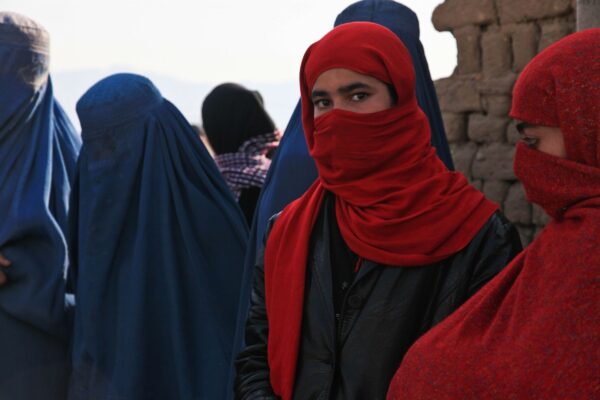The Afghan Taliban government ordered women on Saturdays to cover their faces in public, return to the signature policy of the hardline government of the past and increased restrictions that caused anger at home and abroad.
A decree from the group’s highest leader, Haabatullah Akhundzada, said that if a woman did not cover her face outside the house, her father or relatives of the closest male would be visited and faced the potential of prison or shooting from state work.
We call on the world to work with Islamic Emirates and Afghan people … Don’t bother us. Do not bring more pressure, because history is a witness, Afghanistan will not be affected by pressure, “Mohammad Khalid Hanafi, Minister for the spread of virtue and prevention of representatives, said at a press conference.
The ideal face is the blue burqa which includes all, said the group, referring to the compulsory clothing for women in public during the previous Taliban rules 1996-2001.
Most women in Afghanistan wear hijab for religious reasons but many in urban areas such as Kabul do not cover their faces.
The Taliban has faced strong criticism from the Western government, but also by several religious scholars and Islamic countries, because it limits women’s rights including keeping the high school of girls’ high schools.
The UN mission to Afghanistan (Unama) said in a statement on Saturday that they would immediately find a meeting with the Taliban about this issue, adding it to consult with others in the international community about the implications of the decision.
Unama is very concerned about today’s announcement by the Taliban de Facto authority … This decision is contrary to many guarantees regarding the respect and protection of all Afghan human rights,” the statement said.
The United States and others have cut development assistance and sanctioned the banking system since the group took over in August, encouraging Afghanistan towards economic destruction.
The Taliban said that it had changed since its last rule, but in recent months had added regulations that limit the movement of women without a male companion and forbid men and women from visiting together.
This disrupts the woman’s personal life,Advocates for women-based women’s rights in Kabul Mahbouba Seraj said about Saturday’s decision.” Today we have many other problems, such as suicide attacks, poverty … people are dying every day, our girls cannot go to school, women cannot work … but they just think and speak and make invite -Law on Hijab (Women’s Islamic Clothing).
Reporting by Kabul Newsroom; Additional Reporting by Jibran Ahmad in Peshawar, Pakistan; Writing by Charlotte Greenfielditing by Michael Perry, Andrew Cawthorne and Matthew Lewis.




